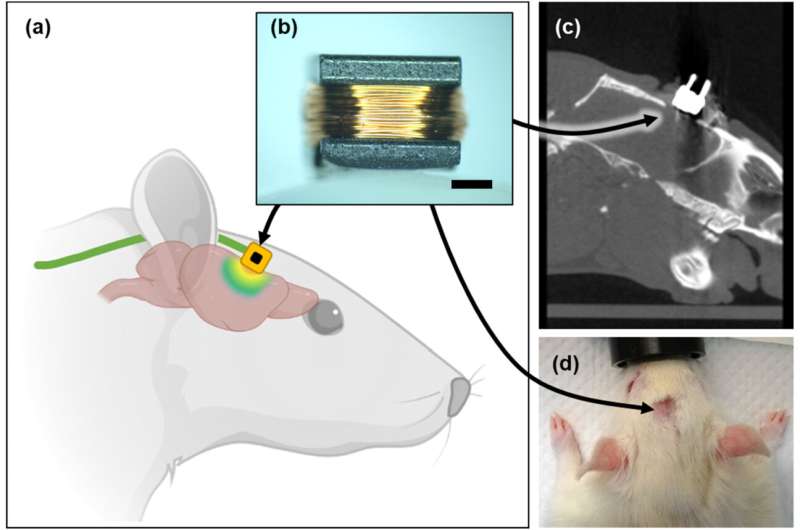Brain-stimulating technologies are being used to treat Parkinson’s disease and to aid in stroke rehabilitation. Currently, the most common method of brain stimulation involves passing a small electric current through the brain.
This method requires the insertion of electrodes directly into the brain, which can cause damage to brain tissue, and in the long term, it can cause inflammation around the electrodes, reducing the stimulation effect.
Other non-contact brain stimulation methods use magnetic fields, such as transcranial magnetic stimulation (TMS), which is currently used clinically to treat depression.

